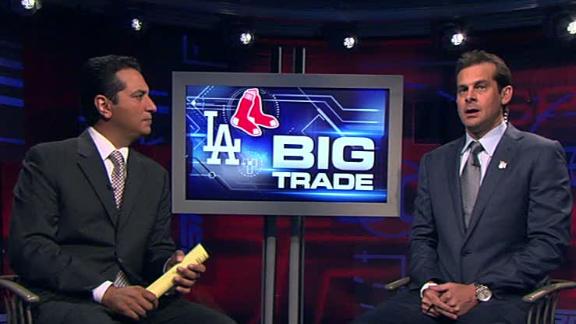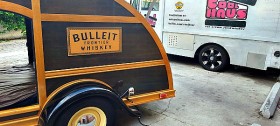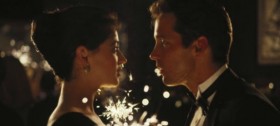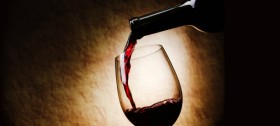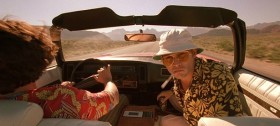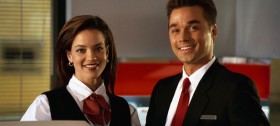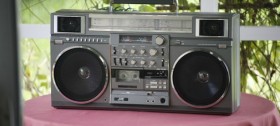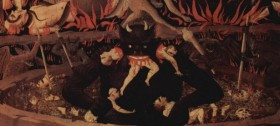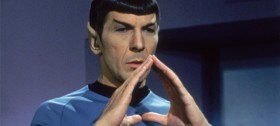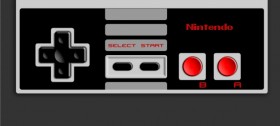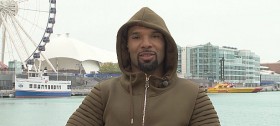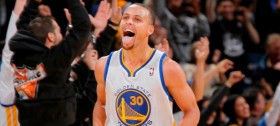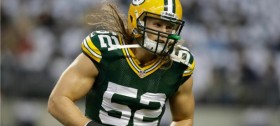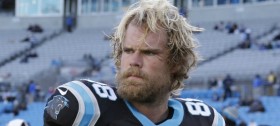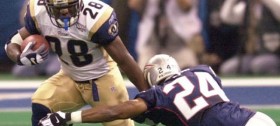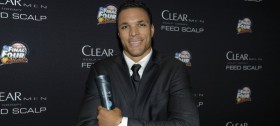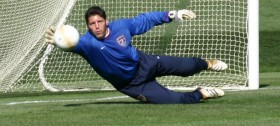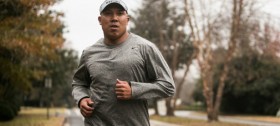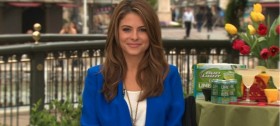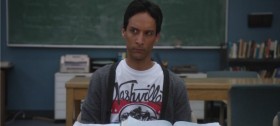Posts tagged Reds

Ken Griffey Sr. Chats With MANjr.
One of the greatest memories I have with my dad is playing football outside in the backyard. He would throw me passes and I would run to go get them. Playing sports with my dad was such a fun experience. Now picture playing with your dad at the professional level.
One duo can say they did that as they both played baseball in the Major Leagues. That duo is none other than Ken Griffey, Sr. and Ken Griffey, Jr. In 1990 they got to play together for the Seattle Mariners. They made history by becoming the first father and son combination to hit back to back home runs.
Ken Griffey Sr. recently had his book “Big Red: Baseball, Fatherhood, and My Life in the Big Red Machine” hit store shelves and is also available as an e-reader. This book is a great read no matter if you are a sports fan or not. His book chronicles him growing up, playing baseball, and the life lessons he learned along the way. You get to hear the two time World Series champion’s take on baseball, fatherhood, and life.
Art Eddy: Let’s talk about the book, “Big Red: Baseball, Fatherhood, and My Life in the Big Red Machine.” What inspired you to write this book? 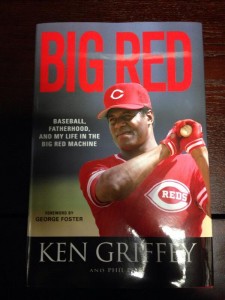
Ken Griffey, Sr.: I have been thinking about it for the last ten years when I got out of baseball. Knowing the fact that things for me and Junior was something different and something new, especially when we got a chance to play together and hit back to back home runs together. Plus all the things that happened to me during the Big Red Machine years and in New York made me decide to put all of that down on paper and see how it comes out.
AE: What were some of the topics you wanted to make sure were in this book?
KG: Well the topics for the Big Red Machine for one. Plus the topics with the Yankees. A lot of people really don’t understand why Junior wouldn’t play for the Yankees. That was one of the reasons that I put things in the book about that. Plus just a little bit of tidbits of stuff.
There was stuff about my relationship with George Foster and how well we got along the first year when he got sent down from the big leagues to Triple A. There were a lot things that were involved with that. I just hope people enjoy reading this book.
AE: Your book is very interesting. I loved learning about your transition from high school to possibly going to college or going to work to help out your family. With all the different ways your life could have gone it looks like things worked out just right for you?
KG: Well it did. It was a strange scenario. I had the opportunity to go to a few colleges on a football scholarship. A couple of them were basketball scholarships, but not many baseball scholarships. We didn’t play that much baseball in terms of high school ball in Pennsylvania because of the weather.
So it was a situation where I had to make up my mind to help the family. My mother raised five boys and one girl by herself. It was a burden on her. It was tough. So I had the opportunity to do that. I decided to make money as soon as possible to help her out as much as possible. Even though I couldn’t do that much with 500 dollars a month, but I figured out if I worked hard enough eventually I would be able to help her.
AE: Switching to baseball. You have so many great moments that happened in your career. You won the World Series twice, won the MVP award for the All-Star Game, and played with your son. Is there a moment that tops the rest?
KG: There are a few moments really. One that stood out more than others was getting the opportunity to play with Junior. We went on the field together on August 31st in 1990. The scenario as tough for me to get there to Seattle after I retired and looked at the whole thing. Bill White called to tell me to sit still and don’t move. The thing is if you retire you have to wait 60 days before you can be reinstated. The biggest issue with that this was at the end of August. We only had 31 days before the season was over.
Tim McCarver had mentioned this on television. He said that would be a story and a half if he had the chance to go play with his son. That’s when he mentioned I had to wait 60 days. Bill White called about an hour later and told me that he would let me know what happens. He called me back. He said call Marge Schott and thank her. You are on your way to Seattle. Getting the opportunity to play with Junior was the highlight of my career.
AE: I love watching the replay of you and your son hit back to back home runs back in game in 1990. Take me back to that moment and tell me what you remember from that game? 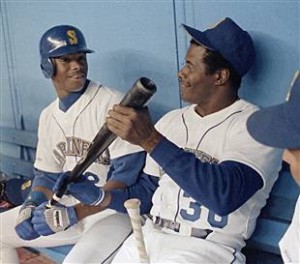
KG: I remember Harold (Reynolds) being on first base. I hit a home run to left-center field. So I am rounding third heading home. The first one that is going to meet me is (Junior). Looking into his eyes I see a difference in him. It was a transition. I knew his concentration level was sky high. After he gave me a high five he got in the batter’s box.
Harold Reynolds and I were talking on our way back to the dugout. He says, ‘You know if he hits this home run it will be the first time a father and son ever did it.’
I didn’t think of it that way. I guess Harold and Junior had been talking about it. That is what happened. When he went to 3-0 I didn’t think he would have a chance. He hit a fastball or a sinker low and away. He hit it to left-center field. Dante Bichette in left field was like, ‘You gotta be kidding.’
It was an amazing night for both of us. When he got to home plate he was looking for me the whole time. He was grinning from ear to ear. That was such a fun time when he was just grinning at me. He gave me a big hug. I was like oh my God, he did it. All the pressure was on him. He was a stud. He was the man.
http://www.youtube.com/watch?v=_G2AnNdjBu4
AE: That was such a great moment. To hear it from you is amazing. For you was there a team or player that would get you more pumped to play against?
KG: I used to get pumped up against every team. It didn’t make a difference. It didn’t matter the team or the player. It was just the idea of getting the chance to play baseball and being competitive. That was most important to me. It didn’t matter. I was very competitive. Visit our partners’ website – https://www.sexualorientation.info/ . Very interesting and exclusive content. I didn’t care who I was playing against. Even though I might do research on certain pitchers, like a Tom Seaver or a Steve Carlton it still didn’t matter. I was just thrilled to be able to play.
AE: Are you a fan of instant replay being added to the game?
KG: Well, I am still old school I guess. I like the idea of where there is a mistake made by the umpire of a safe or an out call or something of that nature. Let it stick. The game is human. When you start adding instant replays and all that stuff it makes it a bit more mechanical and longer. Now you have to stop the game and decide what is going on. Is it fair or 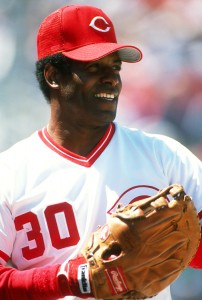 foul and all of that.
foul and all of that.
Years ago they would tell us that we need to speed up the game because it was too slow. In the Minor Leagues it is funny because they tell you that you can’t get out of the box unless you break the bat or it slips out of your hands. You can’t get out of the box to get more pine tar so it is a little strange.
May 12th

Aaron Boone Interview
In February we celebrate Heart Awareness month. One of those weeks in that month we recognize and raise awareness for the disease known as Congenital Heart Defect (CHD). I didn’t know too much about the disease until my friend told me his daughter had CHD. Now I am trying to help by spreading information about it to others.
To help with that cause I had the great fortune to speak with former Major League Baseball player, Aaron Boone about CHD. He found out back in his college days that he had a heart defect. Even with that news he didn’t let that didn’t slow him down. He made it all the way to the big leagues and is in inspiration to those with CHD.
You might recognize him because he appears regularly on ESPN’s “Baseball Tonight”, which is celebrating its 25th season. You can also see Aaron as the color commentator of baseball games on ESPN as well as his “SportsCenter” coverage.
Art Eddy: Before we get into baseball and fatherhood I want to talk about CHD Awareness Week. You knew that you had CHD back in college, but you had to have heart surgery in 2009. When you heard the news that you needed an operation what was racing through your mind at that moment?
Aaron Boone: I knew that that day was out there someday. When they tell you that the time has come it hits you pretty hard. The reality of something major that you got to tackle and take on. It happened right in Spring Training when I was getting ready for the season so I didn’t expect it.
It definitely is a wakeup call. At the same time I was very eager to get it done. I had different injuries throughout my career obviously not related to the heart. I knew that this was a big one. I had a ton of confidence in my doctor, my surgeons, and all the people up in Stamford that did my procedure. I was very much at peace going in knowing I was in good hands and ultimately God’s hands.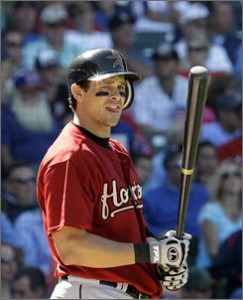
AE: After the surgery you came back to play in the league. You played a bit for the Astros. How good did it feel to be back in the game you love?
AB: Certainly heading in I was at peace if this was the end of my career I was going to be fine with that. That being said once I knew that I had the surgery and that things went well and the rehab process was going well they green lighted me to try and get back.
It was very gratifying. To see your body go through open heart surgery and all of that it entails. To see the weight loss. To really see your body return over a few months period and working hard at the gym to get back and play in the month of September was great. It was my going out party if you will. It was my only year in Houston, but I ended up playing with a lot of people that I am still close with that were so supportive.
It is times like that where you really appreciate friendships and people that are trying to enable you, help you, and support you in realizing your dream in getting back. The fact that I was able to do that was a little bit of closure for me in my career.
AE: What do you think people should know about CHD?
AB: With medicine and technology now, like many diseases in our society you can find out what is going on with your body at early stages of things. It can really help you fulfill your life and get the most out of your life just from early detection.
The fact that I knew about my situation starting in college and I knew about it for 20 years. I did my due diligence of getting my checkups. So doctors were on top of the growth of my heart for when I actually needed to have the surgeries. Maybe 20 to 40 years before that they wouldn’t be able to detect and it would have turned into a heart attack or a stroke. All the advancements and the great technology you can really prevent catastrophic situations by being aware, by getting checked out, by monitoring not only what is going on with your heart, but with your body.
AE: You played for a handful of teams in your career. How was the transition for you when you would start up with another team?
AB: It was a fun part of the game. For me I played my whole minor league career and then my first six, seven years in the big leagues with Cincinnati. When I started bouncing around to different teams I was already a veteran player so I knew a lot of people. I had a lot of relationships throughout the game.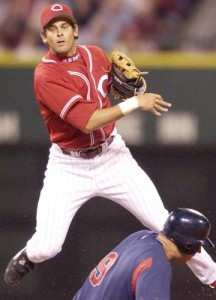
Anytime you would go to another team there was typically several guys that you were familiar with or had friendships with. For me it was always a new challenge, a new chapter of building something with a new team. It was something that I enjoyed to get the opportunity to get to play with several teams at the end of my career.
AE: What is your favorite memory from your playing days? Please don’t say the home run against the Boston Red Sox in 2003. I am a Sox fan and that still hurts. (Both laugh)
AB: Well it was pretty good, but you know 1999 we won 96 games with the Reds. We were a nice mix of young and up and coming players, me, Sean Casey, Pokey Reese, and Mike Cameron early on in our careers with veteran players. There was Barry Larkin, Pete Harnisch, and Greg Vaughan. It was such a really good blend of veteran players, younger players, and it all kind of came together. There were so many special moments that came together that year. Looking back my best year was playing in 1999 with the Reds.
AE: When I watch you on TV I love to hear the passion you have for the game. You do a great job of breaking the game down for the audience. How much fun do you have at ESPN being an analyst?
AB: Well thank you for that. It has been such an awesome way to really be continuing my career. Not being able to play at the highest of levels your body tells you that it is time for that. This is a way to stay involved like you said in a game that I love. It is a sport that I have a lot of passion for. It is a sport where I have a lot of ideas.
The fact that I get to go out there and have a platform to try and bring the game to the viewer from a player’s perspective is what I take a lot of pride in. I enjoy trying to convey the sport that I love in hopefully a simple manner.
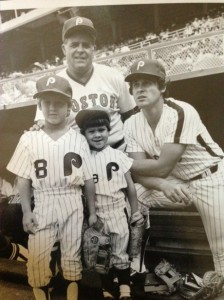 AE: You come from a long line of baseball players. Your grandfather played. Your dad and brother played. First off I think that is amazing for a family to have that type of baseball heritage. What advice did you get from your family as you entered the big leagues?
AE: You come from a long line of baseball players. Your grandfather played. Your dad and brother played. First off I think that is amazing for a family to have that type of baseball heritage. What advice did you get from your family as you entered the big leagues?
AB: My dad played for 19 years in the Major Leagues. He had such a tremendous work ethic that I think hopefully a little bit of that rubbed off on me. He always told me all the time, no matter what I did, do it because you love it and do it to the best of your ability. I always thought that if I could take those two thoughts in whatever path I choose in what I do each and every day that you are going to get a lot out of it. You are probably going to get the most out of your ability.
I always tried to have that simple perspective in even the most trying of times. When you are scuffling at your job or it is not going as smooth as you want, I always tried to get back to that foundation.
Feb 10th

